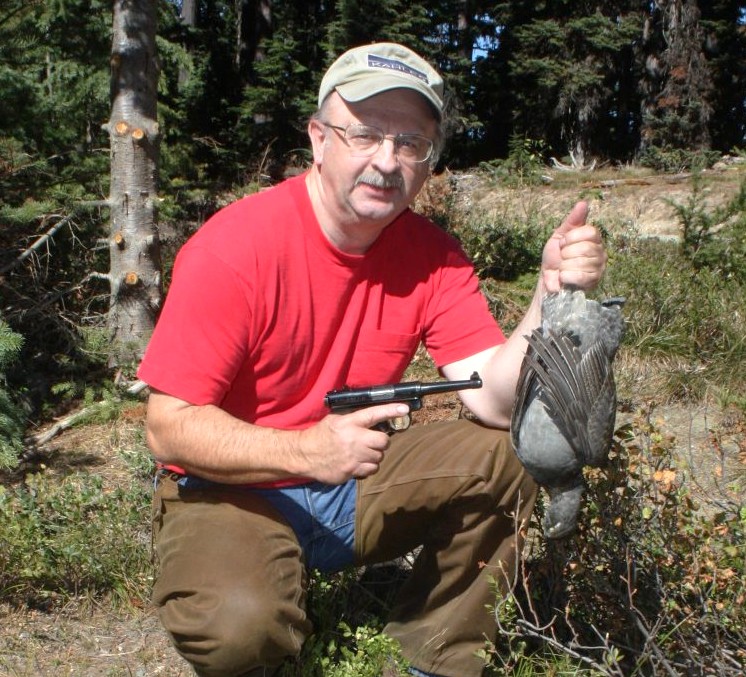
By Dave Workman
Editor-in-Chief
For many years it has been widely known—I’ve made no secret about it—that I hunt grouse and occasionally rabbits with a .22-caliber pistol.
Actually, with several different .2-caliber handguns, including an old Harrington & Richardson 9-shooter, a single-action Hy Hunter, and a couple of Ruger semi-auto pistols, the original Standard model (pre-cursor to the MK I) and a much newer MK IV, the latter with a bull barrel and adjustable rear sight.
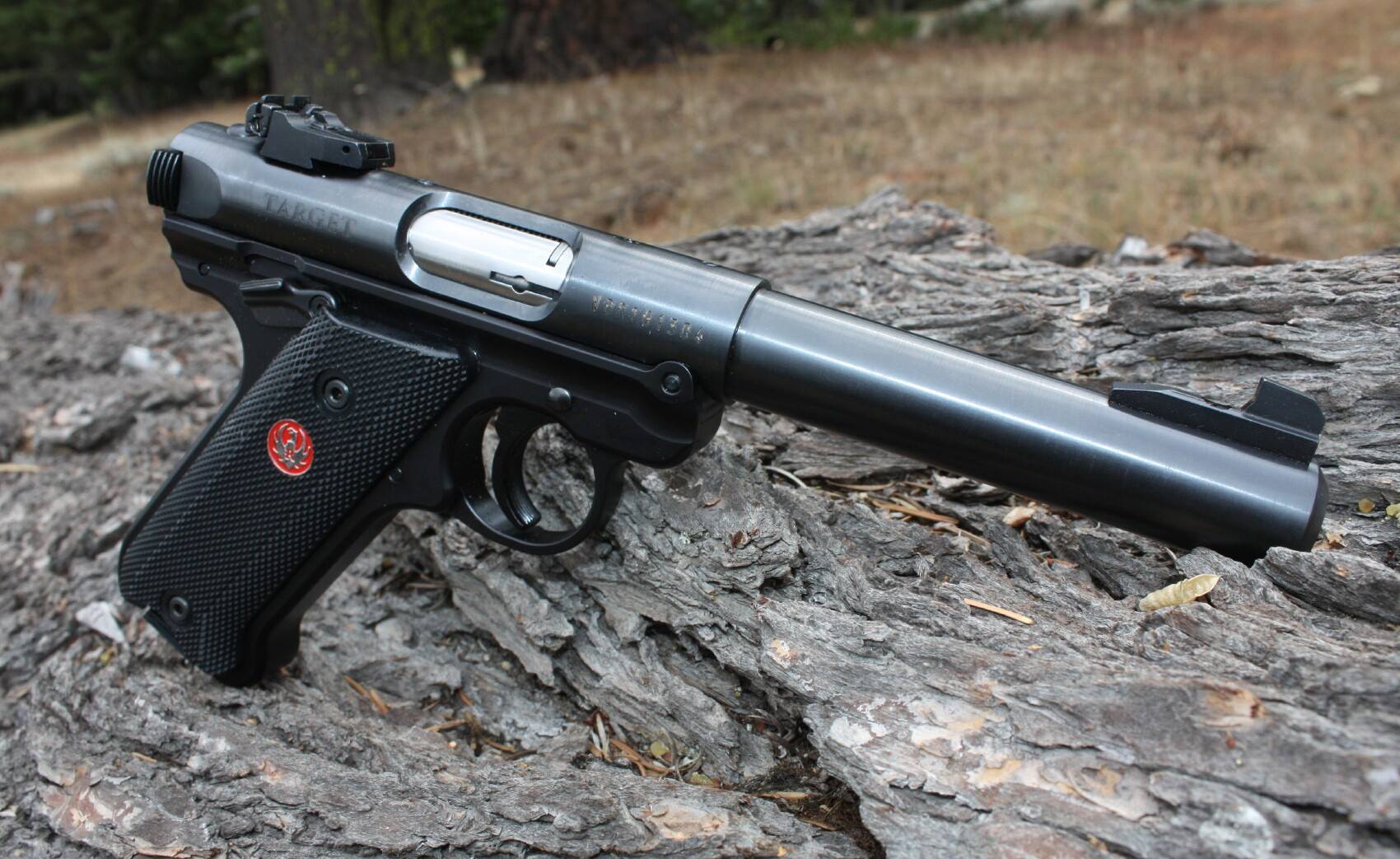
I’ve used just about every brand of .22 Long Rifle ammunition with a variety of bullet weights, from 33 grains up to 40 grains, both copper plated and plain old round-nose lead.
With small game seasons kicking off over the next couple of months, especially in the West, if you’re seriously considering giving this a try, there are a few basic things to do in advance, and this being early August, you’ve got plenty of time.
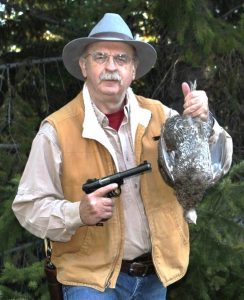
Shooting grouse with a rimfire pistol has gotten me into some trouble with purist grouse hunters, while others think it’s fine.
For me, it’s a challenge, and I remove any worries about biting a chunk of lead at the dinner table.
If someone is going to try this for the first time, or maybe has had bum luck but wants to keep trying, here are some suggestions:
Select one type of ammunition and stick with it. Among my favorites are the 38-grain Federal copper plated hollowpoint, Remington Thunderbolt 40-grain RNL and the 37-grain Winchester copper plated hollowpoint. I’ve found all of these rounds to be very accurate, either out of my pistol or when fired from my Ruger 10/22 semi-auto carbine.
Take a morning or afternoon and head to the range, or the gravel pit, or wherever you practice. Set your target initially at 10 to 15 yards. As your groups tighten consistently, move the target back to 20-25 yards and continue shooting. You’ll likely produce some dandy targets, and improve your skills in the process.
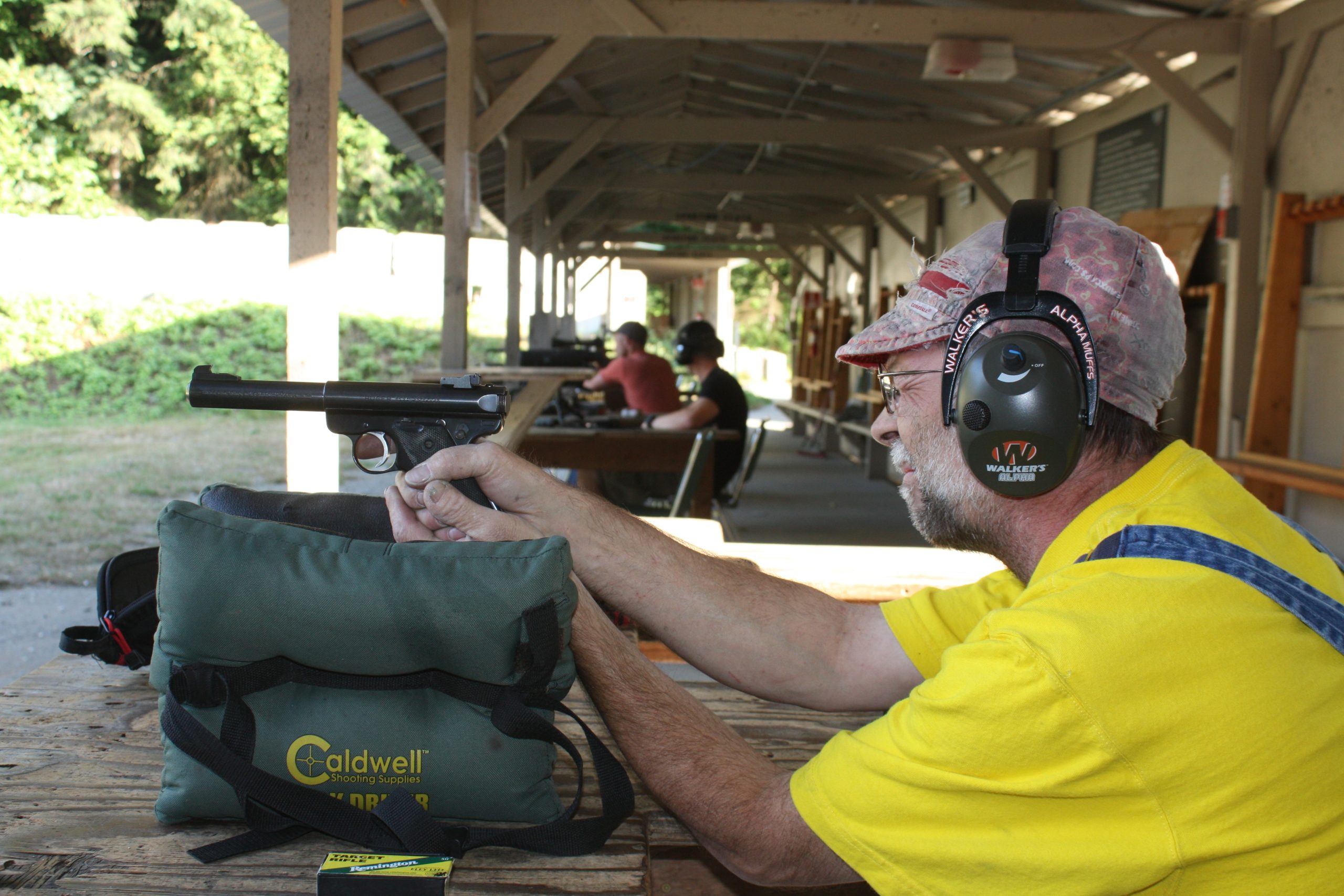
Use a sandbag rest and two-hand hold, and slowly fire a five-shot string, pause, check where your bullets hit, and adjust your sights accordingly. If you shoot low, raise the rear sight, and vice versa if your shots are high. Ditto if your bullets hit right or left of your point-of-aim.
For folks with fixed-sight rimfire pistols or revolvers, examine where the bullets hit and adjust your aim high, low, right or left, as required.
Fire a second five-shot string to determine whether your adjusted sights, or sight picture, does the trick.
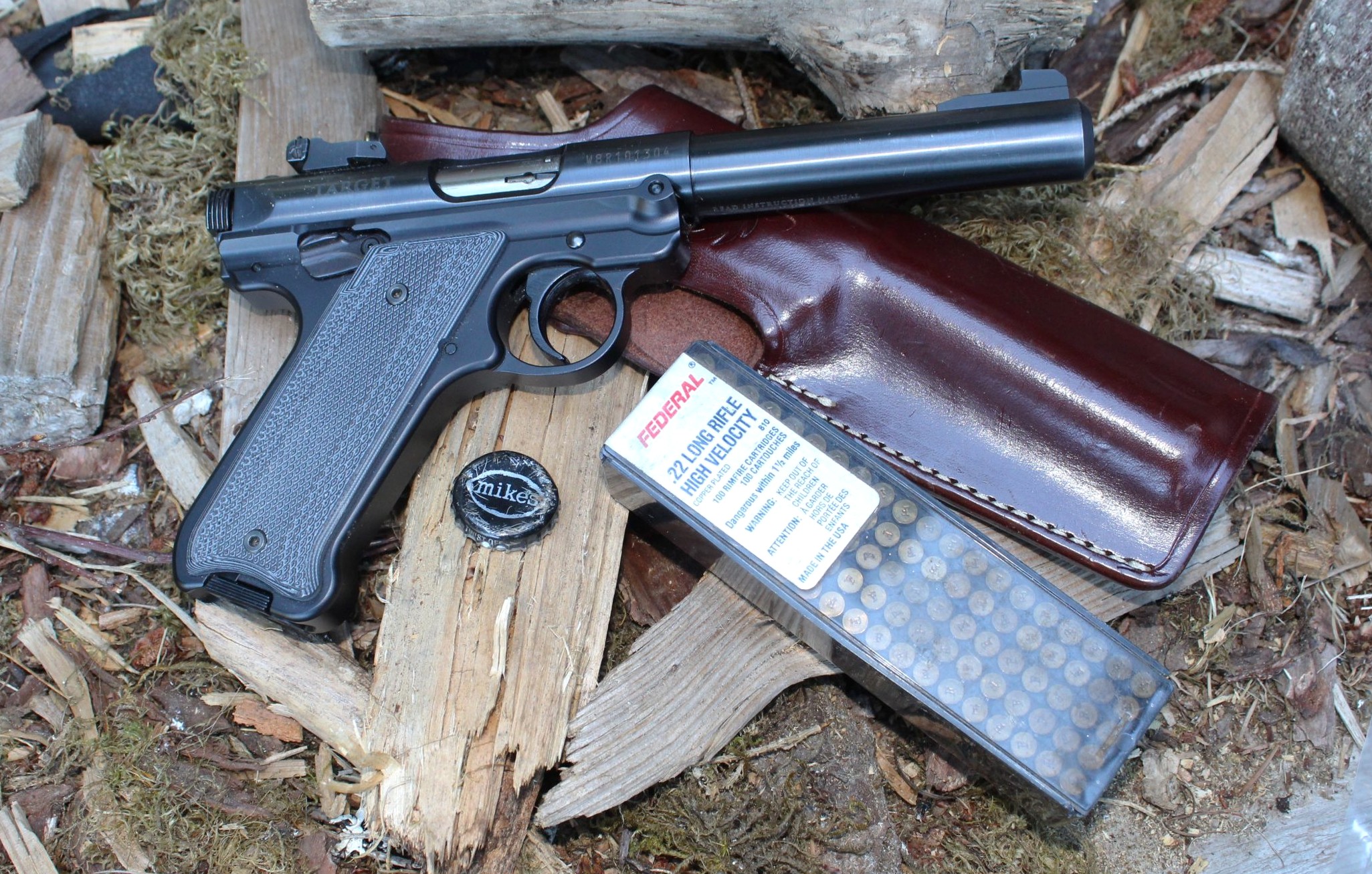
My first Ruger semi-auto was the Standard model with fixed sights. To my delight, on my first visit to the range, it shot to my point of aim at 25 yards, using 40-grain RNL ammunition. Switching from a paper target, I opened fire on chunks of broken orange clay disks and hit nearly all of them, with the misses being so close as to convince me there would be meat in the stew pot had I been firing at live game.
Over the years, I’ve shot raccoons, rabbits and grouse with a rimfire pistol and was never disappointed at the results.
There are many fine new and used .22-caliber pistols and revolvers available at gun shops, gun shows or even online at such reputable outlets as GunBroker.com.
Importantly, you want to hone your shooting skills the point it is not just possible, but probable, that you will hit the target with each shot.
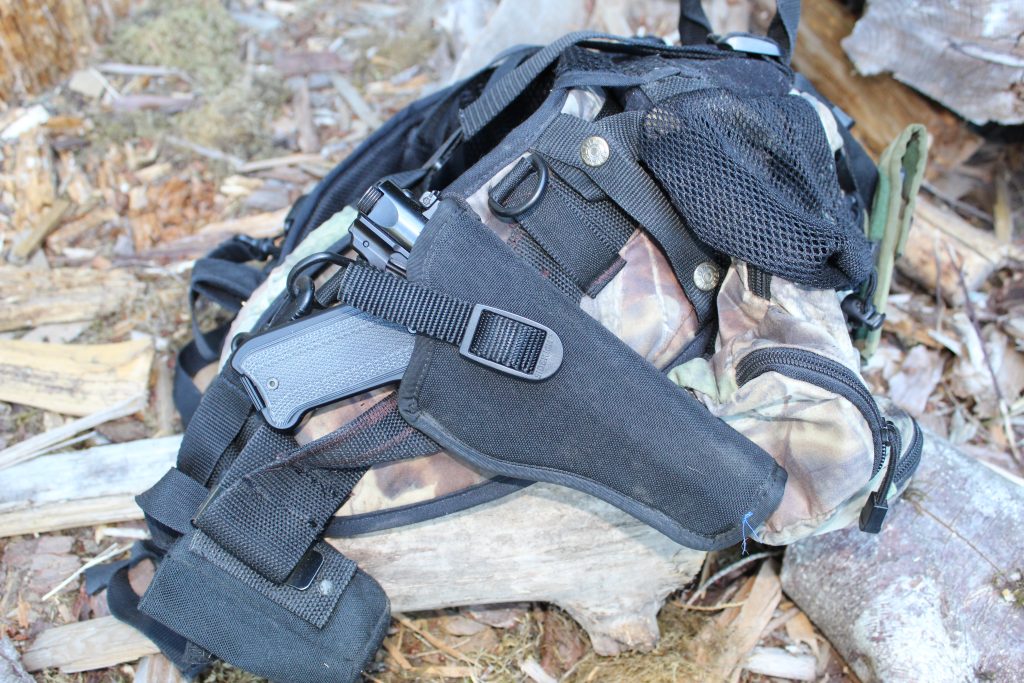
Out here in the Pacific Northwest, and actually all over the West, big game hunters frequently carry a rimfire pistol or revolver for those chance shots at small game. A tasty cottontail or snowshoe hare makes for great table fare at camp, same as a head-shot grouse, and you don’t spend any time trying to pick shot pellets out of the meat as you would if your plugged your game with a shotgun.
One time I regretted not having a .22 pistol was on a late buck hunt many years ago east of Colville in northeast Washington state. I was hunting on public land and moving through an older stand of mixed pine and fir. About every 50 yards, I kept running into blue grouse. Had I been carrying a rimfire pistol, my cooler would have been loaded with fool hens!
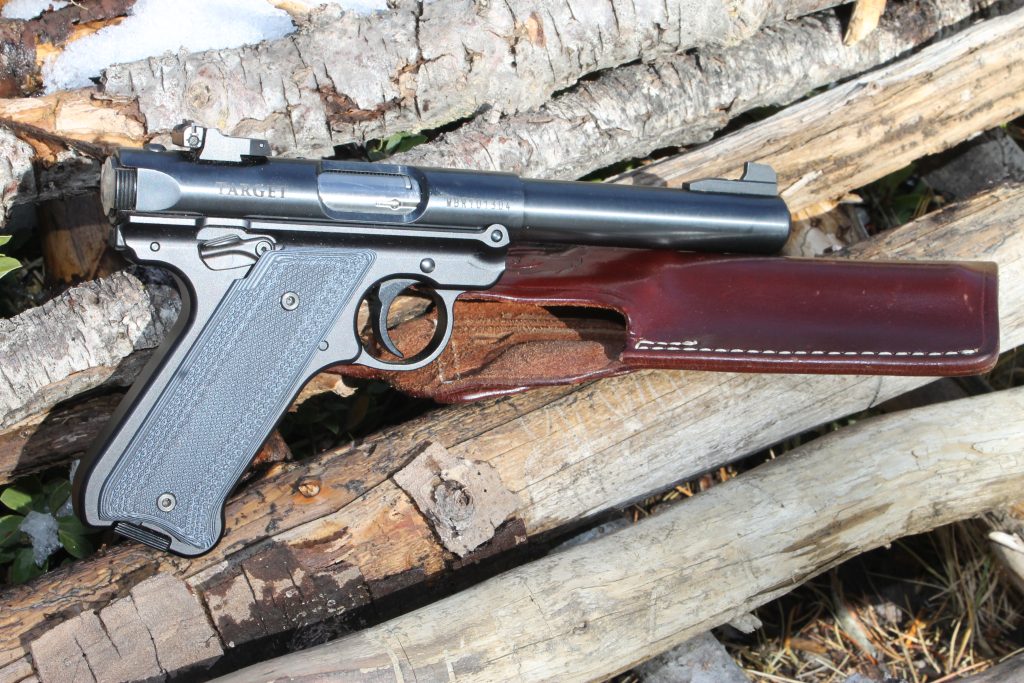
Get a good holster for your pistol, whether a shoulder holster or good quality belt holster. When I acquired my MK IV Ruger, I got a Triple K holster. I subsequently built a similar holster for my brother’s MK II Ruger, and he carries it in that rig on a cartridge belt.
One of the best targets for small game practice is a half-gallon milk jug filled with water. It’s about the same size as a fat bunny or larger grouse, and if you can hit the jug consistently out to 25 or 30 yards, you will be dining on wild game this fall!
Remember to carry a pair of black nitrile gloves for use when cleaning your game.
Now get to work! You’ve got all of August to practice before small game seasons start opening up. Stay safe and shoot straight!



